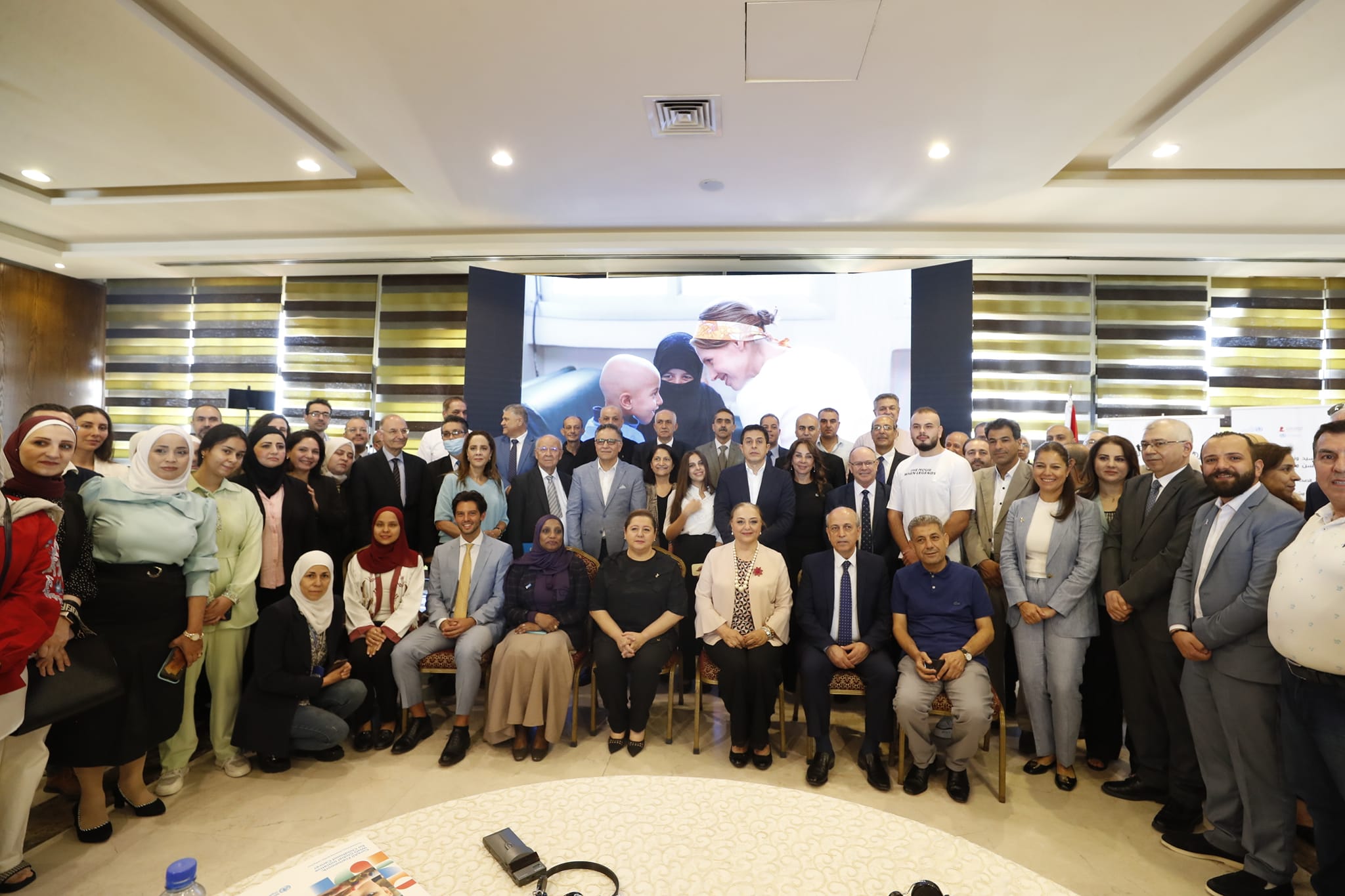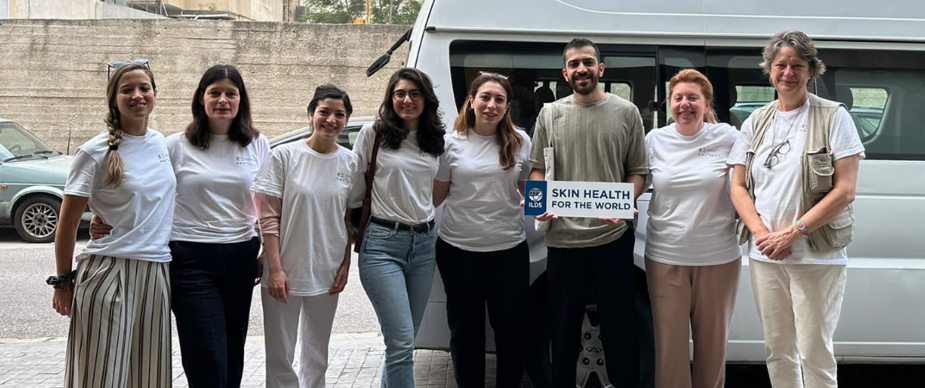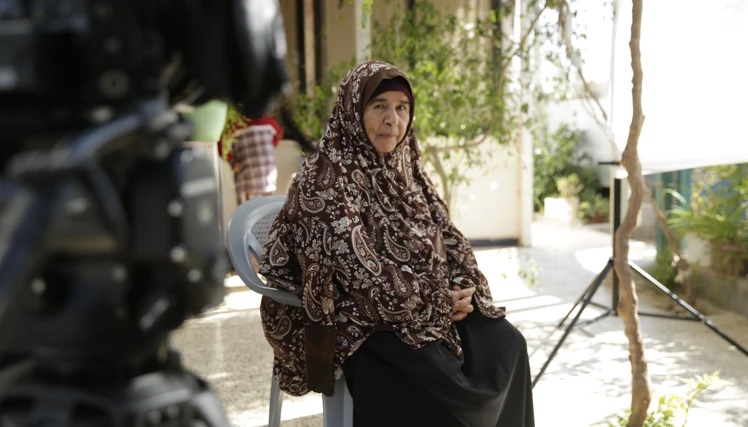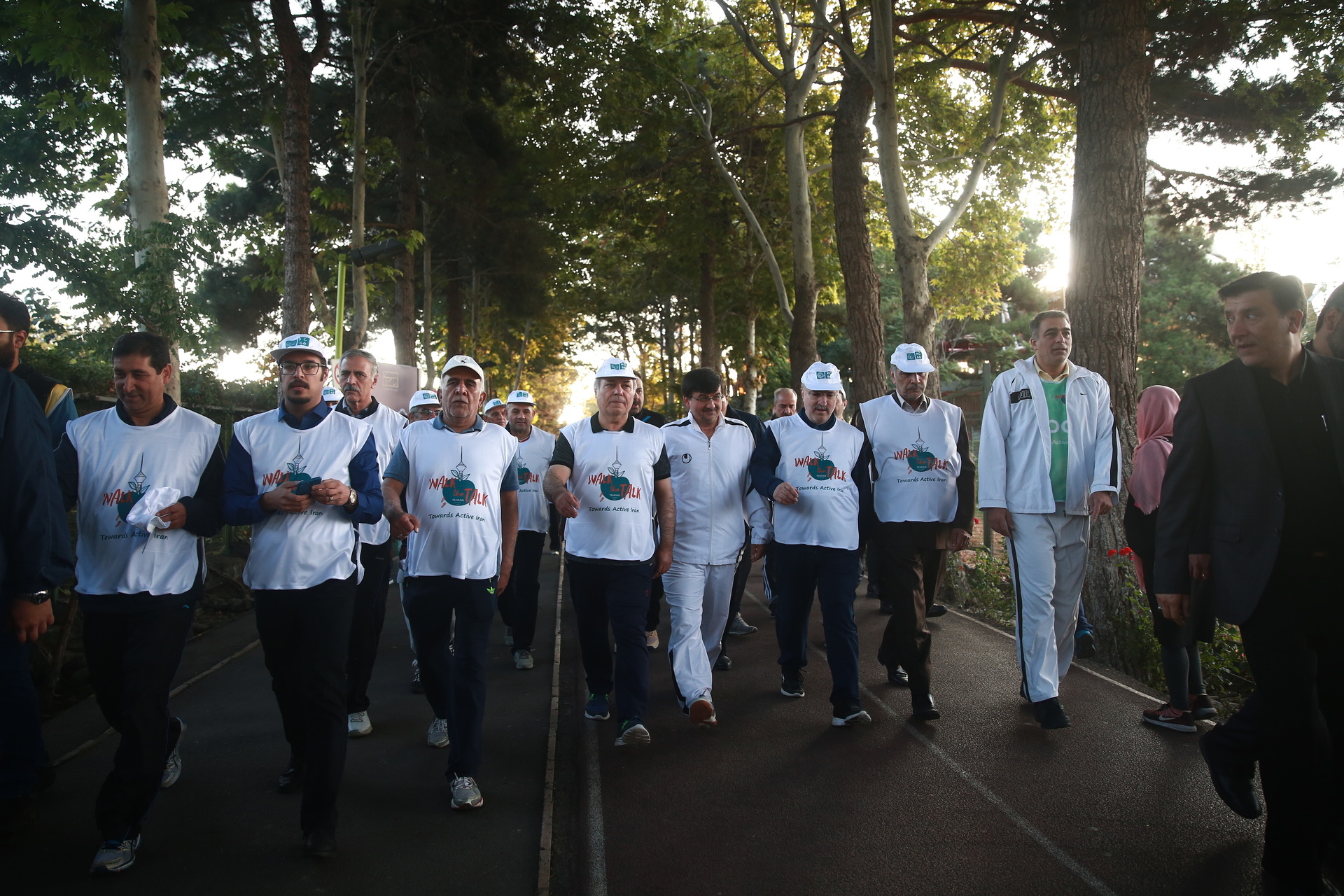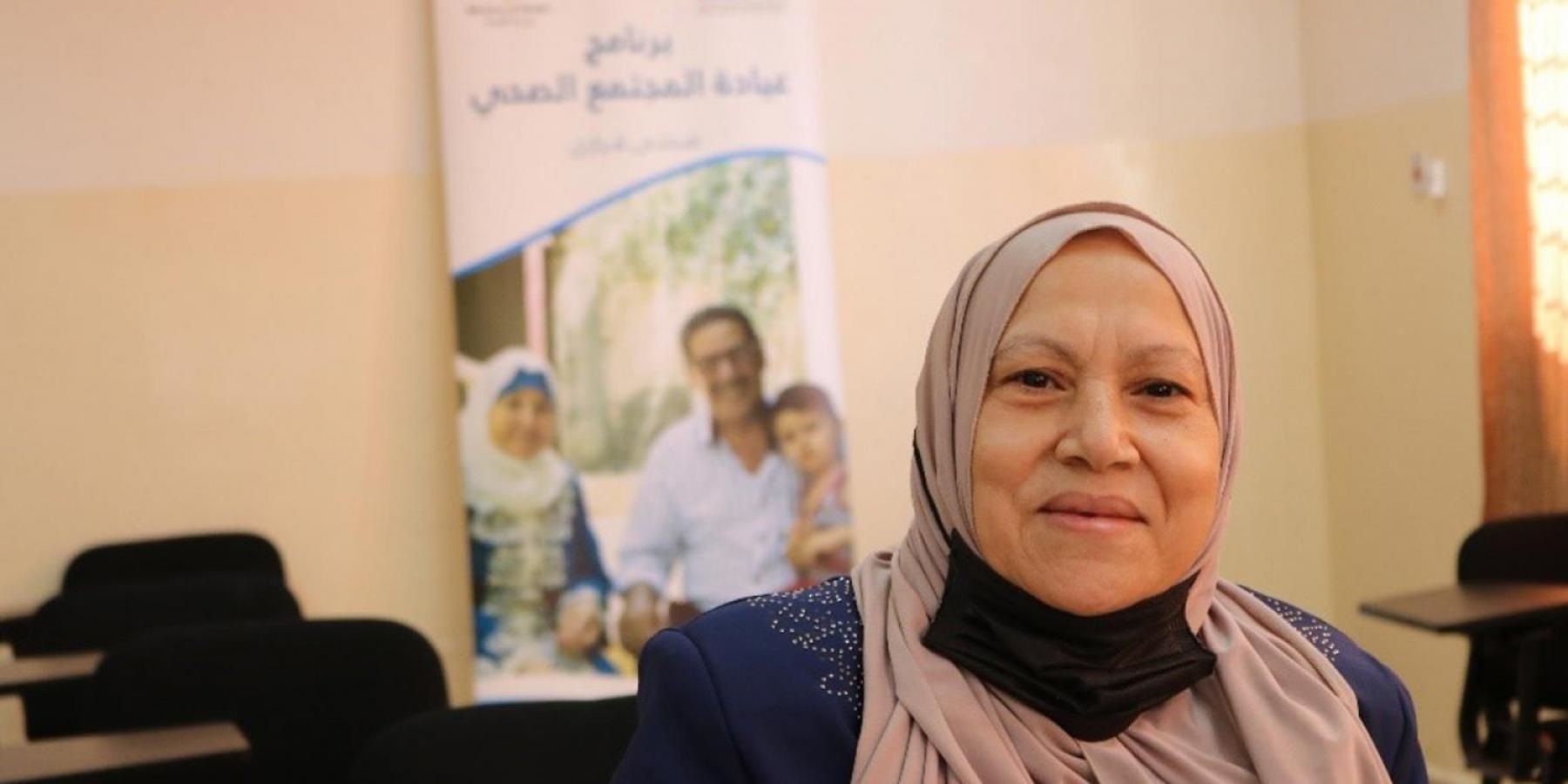In the United Arab Emirates, noncommunicable diseases (NCDs) account for 77% of deaths nationwide. The country is successfully using technology, backed by support from the highest levels of government, to counter the effects of these NCDs. The use of telemedicine and mHealth to transform NCD services during the pandemic and the establishment of an electronic cancer registry, has helped the country move forward against NCDs.
The United Arab Emirates shifted its NCD services from face-to-face consultations in primary health care settings to telemedicine and mHealth. This ensured continuity of service throughout the pandemic.
A ban on the use of waterpipes in public places was strengthened using a wide-scale awareness campaign via social media linking smoking to COVID transmission.
The National Cancer Registry was set up in 2014. Its insights have driven evidence-based decision-making to prevent the most common cancers in the country.
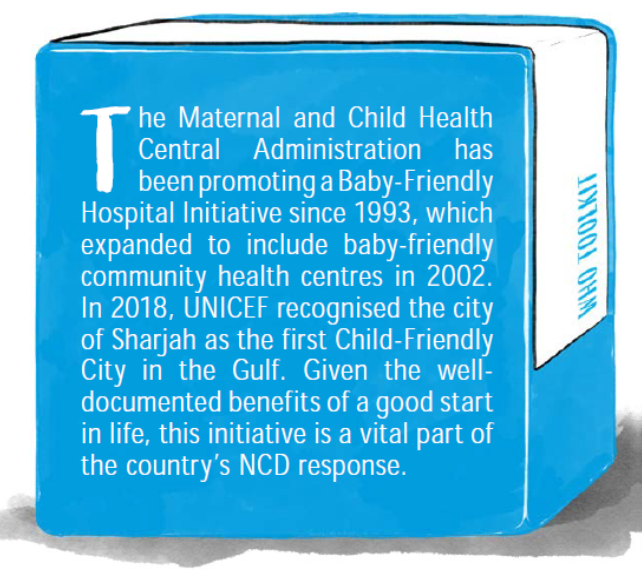 Enhancing cancer data collection and control measures
Enhancing cancer data collection and control measures
The Ministry of Health and Prevention set up the National Cancer Registry in 2014. From the start, the emphasis was on meeting international standards of data collection and analysis, while creating an electronic register that could easily source information from a range of national and international databases.
To ensure high-quality information collection and analysis, the Ministry of Health and Prevention brought in expert talent including a certified tumour registrar, clinical coders and an epidemiologist to manage the data. The Ministry also worked with WHO and the International Agency for Research on Cancer to train cancer registry staff in extracting data to international standards.
Furthermore, the development of a web-based enterprise data warehouse has automated data collection and facilitated data cleaning and extraction.
The National Cancer Registry has identified breast, colorectal and thyroid cancers as the most common cancers in the United Arab Emirates. As a result, the National Cancer Control Plan has launched a range of awareness and prevention programmes to educate and empower citizens to combat breast and colorectal cancer.
Information from the National Cancer Registry also led to the introduction of the Basmah Initiative in 2017, which provides financial coverage for certain cancers under the essential basic package in the mandatory health insurance scheme. This includes all steps from screening to treatment for three types of cancer – breast, colorectal and cervical.
This population-based registry gives an unbiased profile of the country’s cancer burden and has quickly become an essential component of the country’s cancer control programme.
Tobacco control during the COVID-19 pandemic
During the pandemic, the United Arab Emirates focused on three main areas of tobacco control: A ban on the use of waterpipes in public places, which was monitored closely, with fines and premises closures where necessary.
An awareness campaign via social media, highlighting the links between tobacco use and transmission of, or complications from COVID-19. The campaign reached over half a million users between April and June 2020 alone. Moving all smoking cessation services to virtual primary health care e-clinics during the pandemic, with specialist physicians providing counselling via video call or online chat.
Future plans include a training programme for all physicians and dentists to provide basic smoking cessation advice to patients.
Telemedicine and mHealth
Before the COVID-19 pandemic, NCD services were integrated into primary health care through specialized clinics with well-trained multi-disciplinary teams providing a comprehensive service.
To protect vulnerable patients and ensure continuity of service during the pandemic, the Ministry of Health and Prevention adapted a range of NCD services to telemedicine and mHealth formats. This work was supported by His Highness Sheikh Mohammed bin Zayed Al Nahyan Crown Prince of Abu Dhabi and all services were monitored by the office of the Prime Minister of the United Arab Emirates.
Services included:
- A rapid needs assessment for people living with NCDs and an electronic prioritization system
- An e-visit system with phone or video consultations and e-prescriptions for pick up or home delivery
- An e-clinic to encourage smoking cessation
- Screening of all NCD patients during e-consultations to detect mental health conditions and treat them accordingly
- A helpline providing mental health services
- Guidance for self-management of NCDs via social media and the Ministry of Health and Prevention website
- The Sukkaree app, providing consultations and support to pre-diabetics
- Clinics at district level with a triage system and protective measures at entrances for high-risk NCD patients needing urgent assessment or those refusing e-consultations.
The Ministry of Health and Prevention also protected supply chains for essential NCD medicines. Ninety-day supplies of these medicines were delivered to patients, and those with uncontrolled diseases also received regular follow-up phone consultations.
Based on the success of this strategy, the United Arab Emirates is scaling-up telemedicine and mHealth services to cover all essential health services at primary health care level and adopt more simplified elderly-friendly ways to remotely access health services.
This country story is part of a series on sharing successful strategies from the Eastern Mediterranean Region mitigating noncommunicable diseases and mental health disorders during the COVID-19 pandemic and beyond. Discover additional stories and insights in the full report published by the World Health Organization Regional Office for the Eastern Mediterranean.


 Enhancing cancer data collection and control measures
Enhancing cancer data collection and control measures